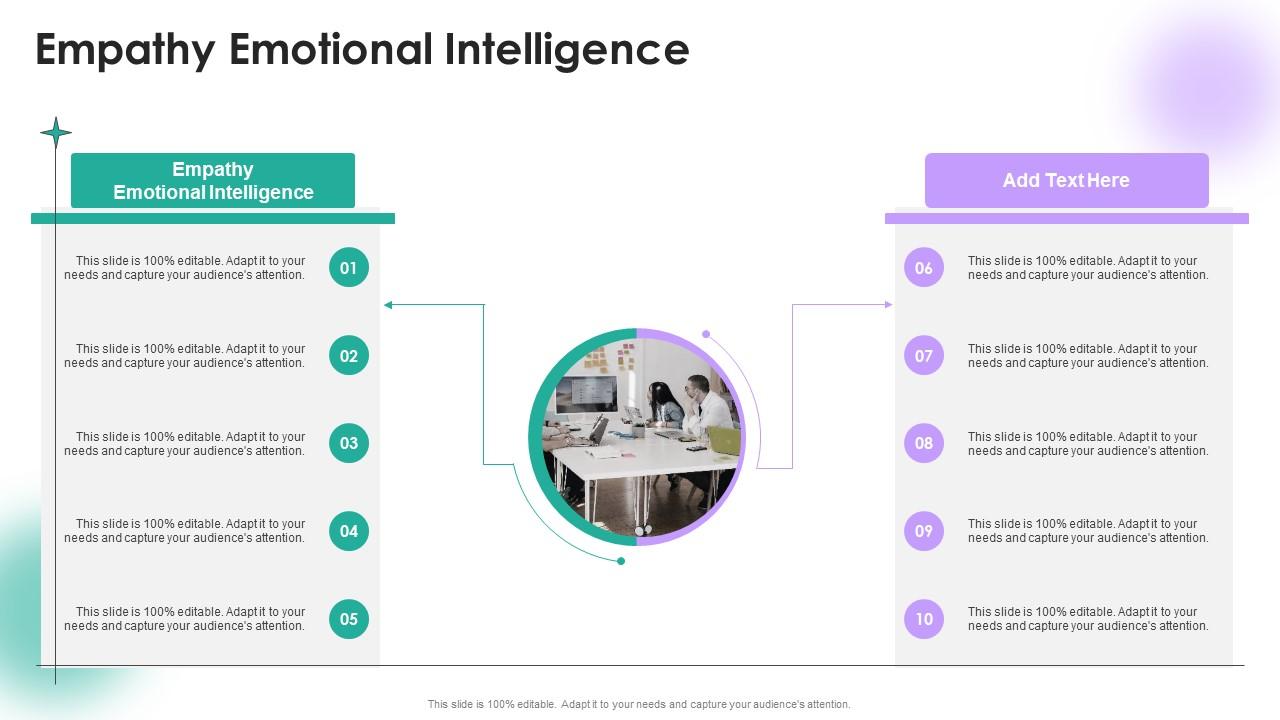Love Monster: A Parent's Guide To Teaching Empathy And Emotional Intelligence

Table of Contents
Understanding Empathy: What it is and Why it Matters
Defining Empathy: The Heart of Social Connection
Empathy is the ability to understand and share the feelings of another. It's more than just sympathy, which involves feeling sorry for someone; empathy goes deeper, requiring us to step into another person's shoes and experience their emotions as if they were our own. This fundamental social skill forms the bedrock of healthy relationships and prosocial behavior.
- Examples of empathetic behavior in children: Consoling a crying friend, sharing toys, offering help to someone in need, showing concern for a hurt animal.
- Why empathy is crucial: Empathy is crucial for building strong relationships, resolving conflicts peacefully, and contributing positively to society. Children with high empathy are more likely to be kind, compassionate, and successful in their interactions with others.
- The link between empathy and prosocial behavior: Empathetic children are more likely to engage in prosocial behaviors – actions intended to benefit others. This includes altruism, helping behaviors, and cooperation.
Recognizing and Responding to Children's Emotions: The First Step
Learning to identify and respond appropriately to your child's emotions is a critical first step in fostering empathy. Observe both verbal and nonverbal cues – facial expressions, body language, tone of voice – to understand what your child is feeling.
- Active listening techniques: Pay close attention to what your child is saying, reflect their feelings back to them ("It sounds like you're feeling really frustrated right now."), and avoid interrupting.
- Validating children's feelings: Even negative emotions like anger and sadness need validation. Let your child know it's okay to feel those feelings, without condoning inappropriate behaviors.
- Helping children label their emotions: Teach children the vocabulary of emotions (happy, sad, angry, scared, excited, etc.). This helps them understand and articulate their feelings better.
- Avoiding dismissal or judgment: Never dismiss or judge your child's feelings. Phrases like "Don't be silly" or "You're too old to be crying" can invalidate their experience and hinder emotional development.
Developing Emotional Intelligence in Children: Building Blocks for Life
Emotional Regulation Strategies: Taming the Love Monster
Teaching children to manage their emotions effectively is paramount. This involves helping them identify their emotional triggers and develop healthy coping mechanisms.
- Deep breathing exercises: Teach simple breathing techniques to help calm down when feeling overwhelmed.
- Mindfulness techniques: Introduce mindfulness practices like meditation or focusing on the present moment to help children become more aware of their emotions without judgment.
- Identifying emotional triggers: Help children identify situations or events that tend to trigger strong emotions.
- Developing coping mechanisms: Teach children healthy ways to cope with anger, sadness, frustration, and other challenging emotions (e.g., taking a break, talking to a trusted adult, engaging in a calming activity).
Fostering Self-Awareness: Understanding the Inner World
Self-awareness is the ability to understand one's own emotions, thoughts, and behaviors, and how they impact others. This is a crucial component of emotional intelligence.
- Journaling: Encourage children to write or draw about their feelings.
- Self-reflection exercises: Ask your child open-ended questions to help them reflect on their experiences and emotions ("How did that make you feel?", "What could you have done differently?").
- Identifying personal strengths and weaknesses: Help your child recognize their strengths and areas for growth, fostering self-compassion and self-acceptance.
- Encouraging self-compassion: Teach children to treat themselves with kindness and understanding, especially when they make mistakes.
Practical Activities and Games to Promote Empathy and Emotional Intelligence
Role-Playing Scenarios: Stepping into Another's Shoes
Role-playing is a fantastic way to help children understand different perspectives and develop empathy.
- Conflict resolution scenarios: Act out situations where characters disagree and need to find a solution together.
- Social situations: Role-play interactions at school, with friends, or family members to practice empathy in real-life situations.
- Understanding different emotions: Role-play scenarios where characters are expressing different emotions, helping children understand the nuances of nonverbal cues.
Storytelling and Books: Lessons Through Narrative
Children's literature offers powerful tools for fostering empathy and emotional understanding.
- Specific book titles: Seek out books that explore diverse emotions, perspectives, and social situations (consider books focused on emotional intelligence or similar themes).
- Discussing characters' emotions: After reading a story, discuss the characters' feelings and motivations. Ask children how they think the characters are feeling and why.
Empathy-Building Games: Fun and Learning Combined
Numerous games can effectively promote perspective-taking and emotional awareness.
- Board games: Many board games encourage cooperation, sharing, and understanding different roles.
- Online games: Some online games focus on emotional literacy and social skills development.
- Creative activities: Drawing, painting, and storytelling can help children express their emotions and understand those of others.
The Role of Positive Parenting in Developing Empathy
Creating a Safe and Supportive Environment: A Foundation of Trust
Children need a safe and supportive environment where they feel comfortable expressing their emotions without fear of judgment.
- Unconditional love and acceptance: Let your child know you love them unconditionally, regardless of their behavior or emotions.
- Open communication: Encourage open and honest communication within the family. Create a space where children feel comfortable sharing their thoughts and feelings.
- Family meetings for resolving conflicts: Hold regular family meetings to discuss issues, resolve conflicts, and practice problem-solving collaboratively.
Modeling Empathetic Behavior: Leading by Example
Parents are their children's most significant role models. Modeling empathetic behavior is crucial.
- Showing empathy towards the child and others: Express empathy towards your child and demonstrate empathy in your interactions with others.
- Expressing emotions openly and healthily: Share your own feelings in a healthy way, showing your child that it's okay to experience a range of emotions.
- Demonstrating conflict resolution skills: Show your child how to resolve conflicts peacefully and respectfully.
Conclusion: Nurturing the Seeds of Empathy
Empathy and emotional intelligence are not innate traits; they are skills that can be nurtured and developed. Parents play a pivotal role in fostering these crucial life skills in their children. By providing a supportive environment, modeling empathetic behavior, and using the practical activities outlined above, you can help your child navigate the complexities of their emotions and build strong, compassionate relationships. Remember, it's a journey, not a destination. Continue learning and growing with your child, embracing the process of helping them tame their inner Love Monster and cultivate a rich emotional life. Explore further resources on emotional intelligence and child development – books, workshops, and online communities offer further support in your journey. Remember, nurturing emotional intelligence is an ongoing process, and every step you take contributes to your child's growth and well-being, creating a more compassionate and understanding individual. Let’s help our children embrace their inner Love Monster and learn to manage their emotions with confidence and kindness.

Featured Posts
-
 Matt Lucas And David Walliams Cliff Richard Musical One Big Snag
May 21, 2025
Matt Lucas And David Walliams Cliff Richard Musical One Big Snag
May 21, 2025 -
 Ings 2024 Form 20 F Key Highlights From The Annual Report
May 21, 2025
Ings 2024 Form 20 F Key Highlights From The Annual Report
May 21, 2025 -
 Baggelis Giakoymakis I Tragodia Toy Bullying Kai To Viaio Telos Enos 20xronoy
May 21, 2025
Baggelis Giakoymakis I Tragodia Toy Bullying Kai To Viaio Telos Enos 20xronoy
May 21, 2025 -
 Quebec Labour Tribunal To Hear Amazon Union Case On Warehouse Shutdowns
May 21, 2025
Quebec Labour Tribunal To Hear Amazon Union Case On Warehouse Shutdowns
May 21, 2025 -
 T And T Minister Imposes Restrictions On Vybz Kartels Activities
May 21, 2025
T And T Minister Imposes Restrictions On Vybz Kartels Activities
May 21, 2025
